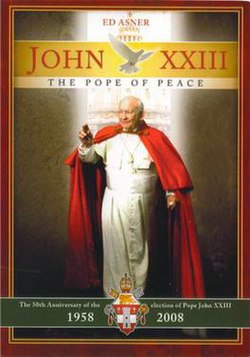Plot
In 1958, Pope Pius XII died. Following his passing, Cardinal Angelo Roncalli, overseeing his tomb at his local parish and receiving the news from his secretary Loris Capovilla, heads to the Vatican to participate in a secret conclave that will elect the new Pope. During the meetings, a bitter struggle erupts between the progressive cardinals and the conservative faction, led by Cardinals Alfredo Ottaviani and Domenico Tardini. The conclave continues and Roncalli recalls some scenes from his past, such as his father's refusal to allow his son to become a priest, which led to an uncle supporting him to become a priest and thereby offering his nephew everything he could to achieve his dreams; the support he offered to a group of striking workers when he was a young priest; the secret negotiations he conducted with a Nazi ambassador to save numerous Jews in Turkey during the World War II; and his mediation work on behalf of several French bishops before President Charles de Gaulle. Shortly after, the election takes place and, under the name of John XXIII, Angelo Roncalli accedes to the pontificate. After this, numerous meetings with Anglican clergy and with the daughter of the then leader of the former Soviet Union, Nikita Khrushchev, Rada Khrushcheva, took place, in the face of the imminent war that was approaching, which forged his legacy.
This page is based on this
Wikipedia article Text is available under the
CC BY-SA 4.0 license; additional terms may apply.
Images, videos and audio are available under their respective licenses.
